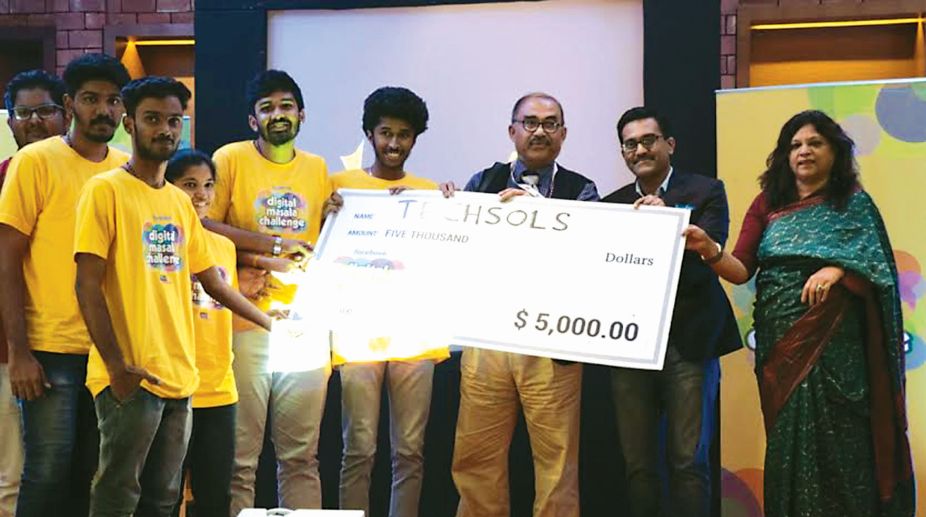Youth dialogue at school
A total of 41 boys and girls associated with the NSS from different colleges in north Bengal participated.

Youth Ki Awaaz
A two-day hackathon named “Digital Masala Challenge” was held at The Lalit Great Eastern Hotel in Kolkata, recently. This was organised by Facebook in partnership with Youth Ki Awaaz — India’s largest user-generated content platform for publishing stories by the youth. The aim was to engage five teams of students to come up with a tech or non-tech solution to counter violent extremism and reconnect communities.
“The biggest challenge that our generation is facing is that our voices are heavily underrepresented when it comes to the main stream discourse. The Digital Masala Challenge came about because we realised that the Internet is a free space for everyone to talk about what they want; again due to which a lot of hateful content is spread. The idea is to bring together young people to find out ways to stop hateful extremism,” said Anshul Tiwari, founder, Youth Ki Awaaz.
The idea is based on the way Facebook counters hateful speeches and the community as a whole that comes together to resist such extremism. Around seven challenges have been carried out earlier, the Kolkata edition being the eighth and the final challenge. The event was earlier carried out in other major cities like Delhi, Hyderabad and Kochi. The two day hackathon brought together six teams from various parts of the country and work on ideas and projects to tackle online violent extremism. The prize money would be implemented by the winning team to further develop their project, as they would be helped by both Facebook and Youth Ki Awaaz to apply the idea.
Several teams from across the country had participated in which Kolkata’s local team from Scottish Church College had participated. Sounak from Scottish Church College came up with the idea to work on a website where they could track self-proclaimed terrorists who would further plan on joining a terrorist group.
Advertisement
“Terrorist organisations try to isolate people. Our website would be like a dummy for these people and the moment they log in we would track him down and get an idea of his location and movement,” said Sounak.
Kerala’s NSS team Techsols, won the $5,000 award worked on a platform interfaced with a web browser extension behind which they have implemented sophisticated technology such as machine learning and block chaining. “If the platform is successful and if we could involve the government and some more NGOs and other such bodies, then we are pretty sure that we could use this technology to stop the spread of radical contents online,” said Aebel, the block chain expert of Techsols.
Advertisement